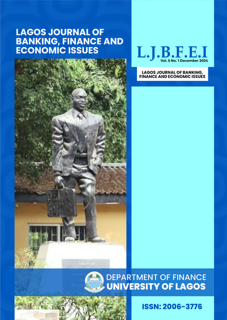THE EFFECT OF EXTERNAL DEBT, EXTERNAL DEBT SERVICE, AND EXTERNAL RESERVE ON ECONOMIC GROWTH IN NIGERIA
Abstract
Despite numerous efforts to manage external debt, West African countries continue to experience rising debt levels, increasing debt service payments, and concerns about debt sustainability. It is critical to analyse whether external debt positively contributes to economic growth or whether excessive debt and debt service obligations undermine economic progress. This study examines the impact of external debt, external reserves, and external debt service on economic growth in selected English-speaking West and East African countries from 1980 to 2022. Using the Feasible Generalised Least Squares (FGLS) estimation technique, the study analyses how these macroeconomic factors influence Gross Domestic Product (GDP), measured in current U.S. dollars. Additionally, broad money as a percentage of GDP and deposit interest rates are control variables for financial sector dynamics. The empirical findings reveal that external debt, external reserves, and external debt service significantly and positively affect economic growth in the selected countries. The findings hold significant policy implications for regional governments and financial organisations. Responsible management of external debt, strategic accumulation of reserves, and adequate debt servicing policies can strengthen economic resilience and foster sustainable growth.

